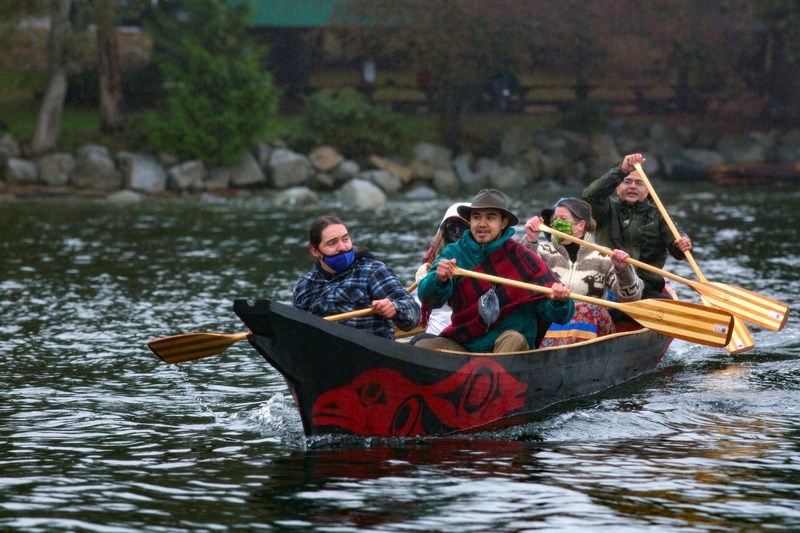Capilano University has introduced a new framework that will guide staff and students to better prioritize and support Indigenous ways of knowing.
Chén虛chenstway, a Skwxwú7mesh Sníchim (麻豆社国产language) term meaning to support and respect one another, has been a collaboration between the university and the Squamish, s蓹lilw蓹ta涩 (Tsleil-Waututh), Lil’wat, Musqueam, Sechelt, and Métis Nations.
Miranda Huron, the university’s director of Indigenous Education and Affairs, said the document outlines five primary areas of commitment: learners, employees, programming, culture and knowledge.
It will provide direction for incorporating First Nations languages, cultures and knowledge, and will offer guidance on how to fulfil the University’s promise to meet the goals and objectives outlined in the Truth and Reconciliation Act, she said.
“This is our commitment to truth and reconciliation, indigenization and decolonization,” said Huron.
“We’re looking at how we bring more Indigenous content into our courses, and we’re having discussions with the Center for Teaching Excellence and the libraries on how we can create support for faculty on their learning journey around Indigenous history and Indigenous knowledge.”
The university is looking at bettering cultural visibility, and the way it engages and interacts with its students, she added.
The document was first discussed in 2018 when the university had Skw’cháys, a 30-foot Coast Salish canoe, commissioned to celebrate the institution's 50th anniversary. The canoe’s arrival prompted discussions on how CapU could strengthen ties with the Host Nations and bolster efforts to indigenize and decolonize education.
“That’s where all of the themes of working alongside each other, and learning from community teachings, have come from,” said Huron.
“As we were going through the work that everybody has done at this university, we really wanted to understand actions that would become a starting point for the work ahead.”
Huron said the university hopes to set up a space where students can visit and communicate to staff what areas of the institution need to experience change.
“That could be anything from student access to certain journals, or maybe there’s an instance of racism in the classroom and it’s, 'OK, so how do we look at our policies? How do we support the students with everything, from something very simple, to something that fundamentally needs to change?'”
As a living document, the framework will continue to change and adapt as the university progresses in its journey of reconciliation, Huron added.
“There’s no end point to reconciliation, it’s a forever learning process,” she said.
“When you’re a guest on these territories, you’re learning from millennia of accumulated knowledge, and so the idea that we’re going to finish this, that’s not a reality. We’re continuously learning how to be good guests to the people who we owe the gift of being able to share these lands.”
Mina Kerr-Lazenby is the North Shore News’ Indigenous and civic affairs reporter. This reporting beat is made possible by the .


